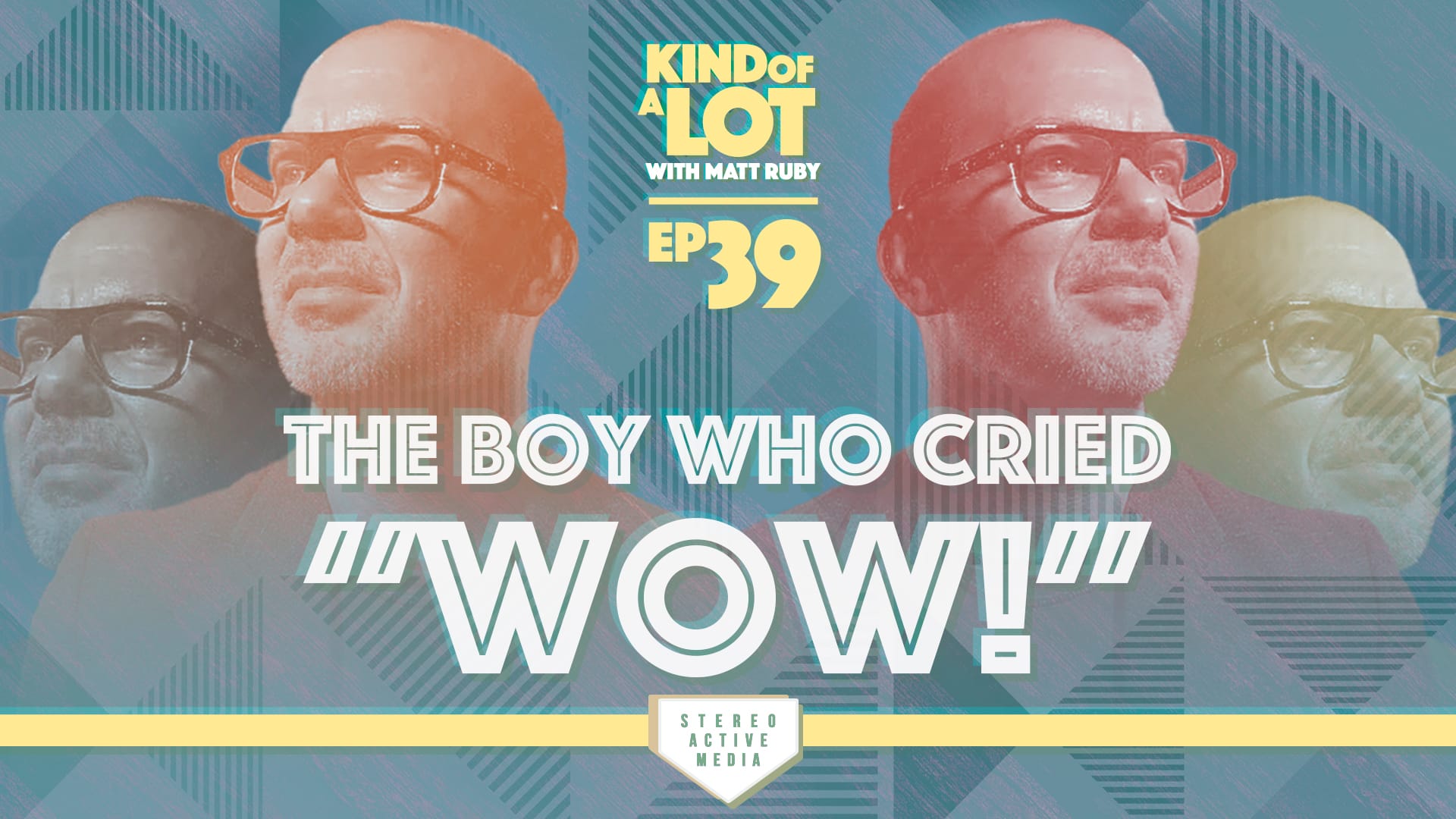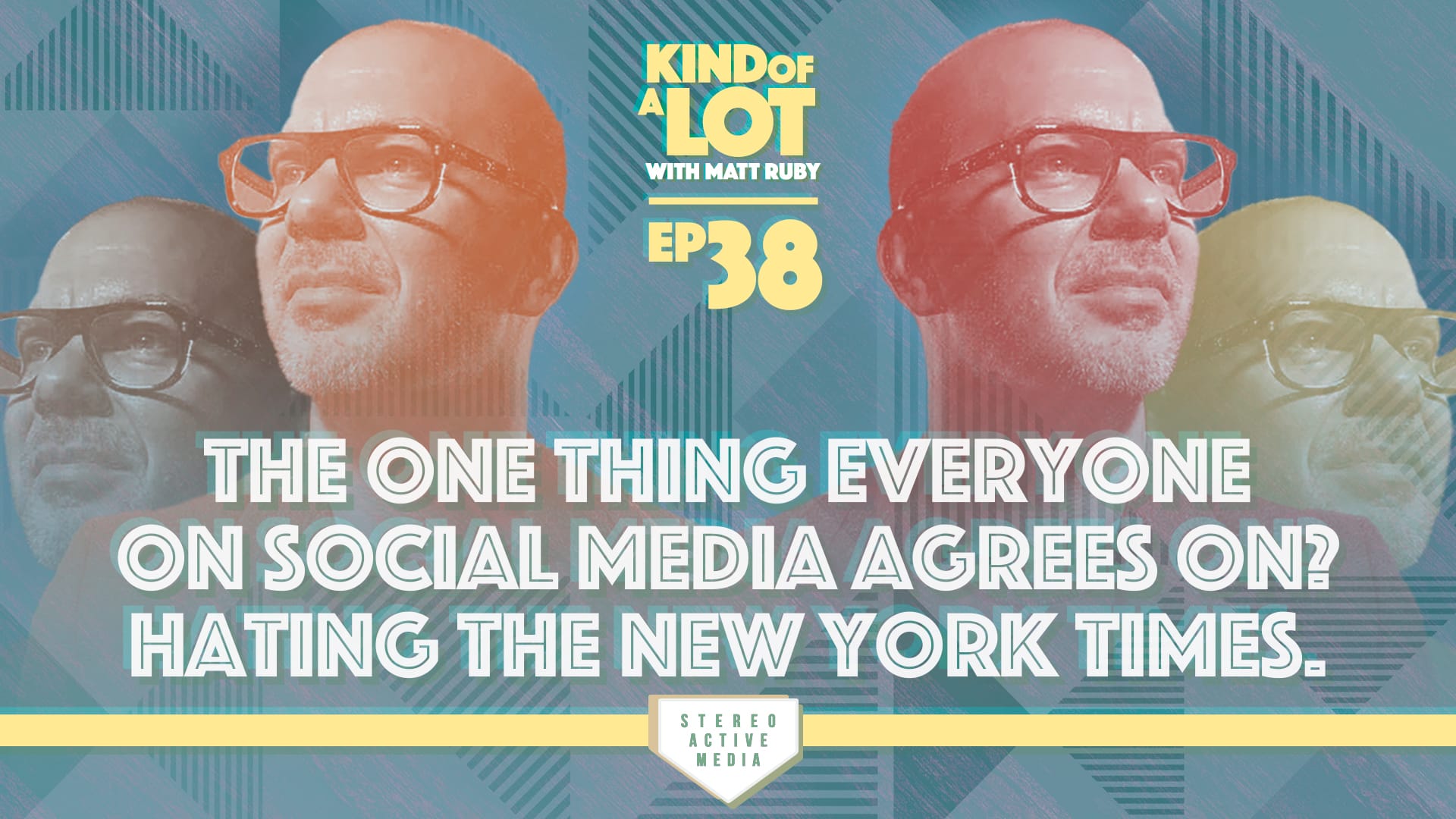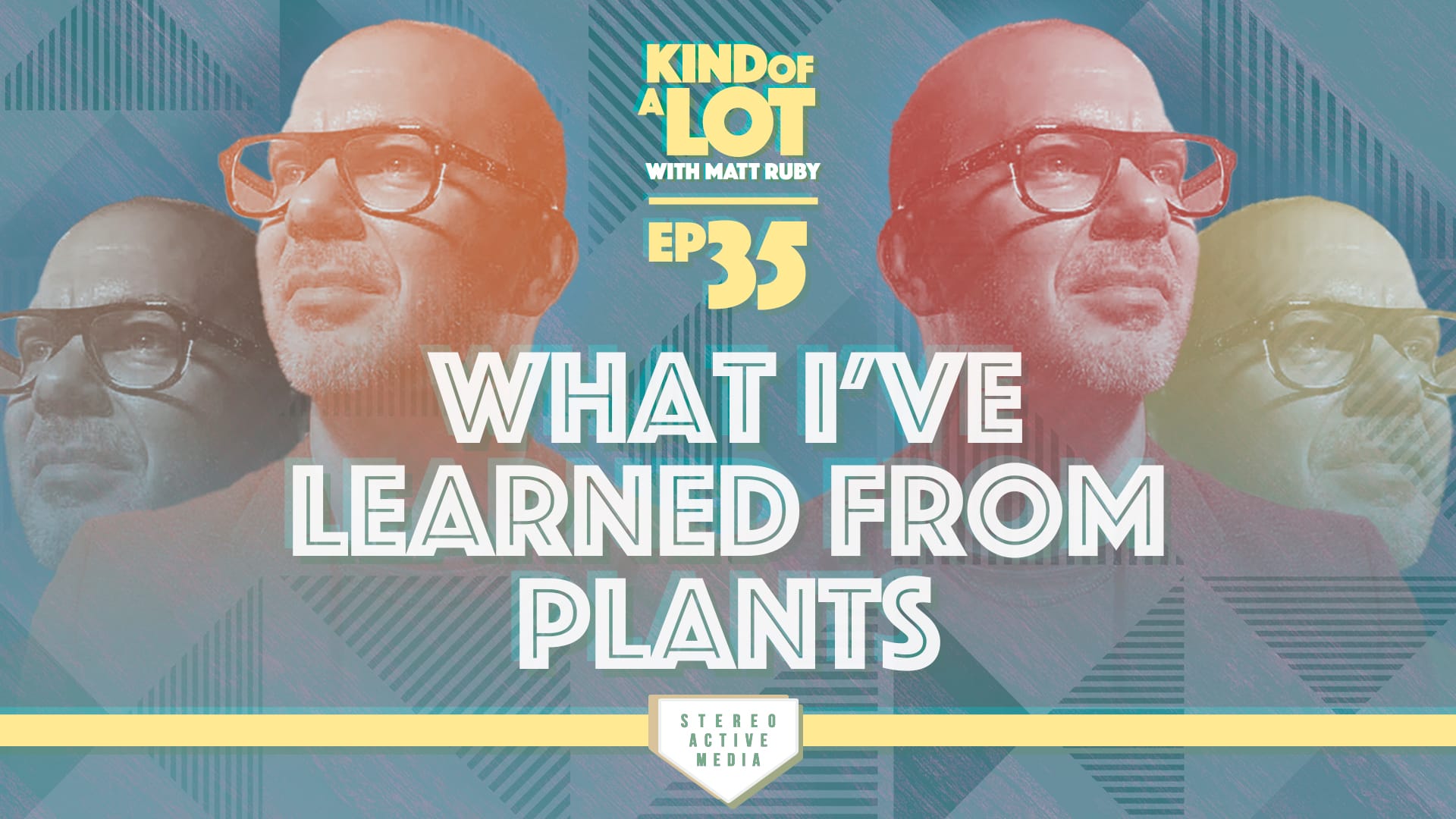Kind of a Lot with Matt Ruby is a video podcast, so subscribe on YouTube and/or watch below!
Of course, you can still listen to the show on Goodpods, Apple Podcasts, Spotify, and anywhere else you listen to podcasts.
Matt Ruby delves into the enchanting story of Ronan Mattin, a young boy whose spontaneous expression of joy—an exuberant “Wow!”—at a symphonic performance ignites a deeper conversation about authenticity and expression. This particular incident occurred in 2019 at Boston's Symphony Hall during a piece by Mozart, and it serves as a perfect backdrop to explore how the pure, unfiltered reactions of children can reveal profound truths often overlooked by adults. Similar to the story, 'The Emperor's New Clothes,' where the boldness of an innocent voice cuts through societal pretense, Ronan’s gleeful outburst created a ripple of laughter and applause, underscoring not just the enjoyment of music but also the rarity of such raw expressions of delight in formal environments. Ultimately, Matt challenges listeners to actively seek out their own “wows,” asking them to identify moments of beauty that break through the mundane. In drawing attention to society’s tendencies to hush candid expressions, perhaps we can illuminate the extraordinary aspects of our shared human experience.
Credits:
- Written and presented by Matt Ruby
- Produced and edited by Jeremiah Lee McVay
Transcript
The following text is autogenerated and may not be 100% accurate.
[0:00] The Boy Who Cried Wow, an essay by Matt Ruby, Once upon a time, there was a boy who cried, Wow! It was 2019,
[0:17] and the child was then 9-year-old Ronan Matten. He screamed it at Boston's Symphony Hall upon the completion of Mozart's Masonic funeral music. The end of the piece actually feels like a whole symphony in and of itself. The orchestra fades out, and then there's silence, and then there's the... Then the audience erupts in laughter, and then huge applause.
[0:47] How the wow emerges is a big reason it's so delightful. There's zero consciousness to it. It seems almost melodic as it glides gently across the room like a feather descending onto the pavement. It's clearly youthful, too. That's probably why the presumably elderly crowd reacts so appreciatively to the outburst. The mere notion of a child enjoying the symphony is, well, kind of surprising. And one who's so overjoyed and shocked that he feels compelled to shriek approval out loud? Now that's really something. It's like hearing a positive version of, okay, boomer. In The Emperor Has No Clothes, a child screams out that everyone's participating in a fraud. At the symphony, Matin's wow is an inversion of that. It's a kid pointing out how what everyone just witnessed and heard was absolutely wonderful. According to his grandfather, who took Ronan to the concert, Ronan has a disorder on the autism spectrum and often expresses himself differently than other people. His grandfather said, I can count on one hand the number of times that he's spontaneously ever come out with some expression of how he's feeling. Mattin's outburst shouldn't surprise us too much, though. Folks on the spectrum often express themselves in a way the rest of us would consider bold. At the Democratic National Convention, Tim Walz's son Gus responded to his father's declaration of love for him by standing up, pointing at the stage, and shouting through tears, That's my dad.
[2:14] Gus's parents say they regard his various disorders not as setbacks but as his secret power that makes him brilliant and hyper-aware. Magazine editor Tina Brown echoed those comments in a piece she wrote about her son. In it, she writes, One of the joys of my life in the social churn of New York is living with a son whose inability to read the room makes him incapable of.
[2:34] Telling anything but the truth. Once, as my husband Harry Evans and I left a pretentious social gathering in the Hamptons, Georgie told the host sonnily, Thank you very much. No one spoke to me, really, so it was a very boring evening. The food was okay. I doubt I will come again. I've never been prouder of you in my life, shouted my husband in the car. How many times have all of us wanted to say that as we gushed about the fabulous time we just hadn't had? Then, in a comment to that essay, a professor of psychology, Paul Siegel, wrote, When Gus Walls shouted through tears, that's my dad, my heart exploded. Neurotypical people have something important to learn from Gus Walls' unfiltered love, my son's thinking, and Ms. Brown's son's matter-of-fact honesty. In our constant reading of others, we can miss the truth of our own experience.
[3:24] Sometimes it takes a person who just doesn't care to point out deep truths the rest of us are missing. All this wow-ness reminded me of Mona Simpson's eulogy for her brother, Steve Jobs. At the end of it, she describes Jobs' final words. I'll read you what she wrote. His breath indicated an arduous journey, some steep path, altitude. He seemed to be climbing. But with that will, that work ethic, that strength, there was also sweet Steve's capacity for wonderment. The artist's belief in the ideal, the still more beautiful later. Steve's final words, hours earlier, were monosyllables, repeated three times. Before embarking, he'd look at his sister, Patty, then for a long time at his children, then at his life's partner, Laureen, and then over their shoulders past them. Steve's final words were, Oh, wow. Oh, wow. Oh, wow.
[4:14] Even while letting go, Jobs managed to retain his childlike sense of wonder. In the final moments of his own life, he was still spotting magnificence, the still more beautiful later. Back to that Mozart symphony. Turns out Mozart was also thinking about death when he wrote the work that elicited that symphonic wow. Mozart was a Freemason who wrote the score to Masonic funeral music in 1785 in response to the deaths on consecutive days of two of his lodge brothers. It was originally performed at a double memorial service at the Crown Hope Lodge. David Melton, writing in The Complete Mozart, says the work celebrates Masonic ideals of truth, brotherhood, and love. So let's think about all that. Notions of truth, brotherhood, love, life, and death, delivered across the centuries via musical notes on a piece of paper, like a secret transmission from Mozart's brain to those violins and cellos, and then into the ears of a child who didn't know he wasn't supposed to scream out in appreciation and decided to let it rip.
[5:17] Wow. It all makes me consider the wows in my life. If I'm being honest, I tend to adopt a been-there-done-that view. Mostly, I'm like the rest of the audience at the symphony. I appreciate and applaud properly and then go back to the whole hum. Perhaps that's why I enjoy psychedelics so much. On shrooms or ayahuasca, I become more like that little boy listening to Mozart. I stare at trees in amazement. Music can move me to tears. I'm blown away by life, by this movie I'm allowed to simultaneously direct, star in, and watch. I drown in gratitude and appreciation. I can't believe I get to experience all of this. And then I come down. Integration. That's always the big challenge. I have to remember, keep searching for those wows. Keep finding the things that make me laugh, applaud, or tear up just a little bit.
[6:10] Our society tends to shun the dying, shush children, and ignore the musings of the disordered. We scoff at people talking about the dream they had last night or someone talking about some wild shroom trip. But perhaps these people deserve more of our attention. They're the ones shining
[6:27] a light on objects of beauty the rest of us walk right past. They're the ones pointing out the flowers among the weeds. They're the ones screaming.
[7:30] And now it's time for some quickies. No one online is actually that upset. They're lonely and desperate for human connection, so they perform outsized emotions hoping to get a shred of attention, good or bad, in order to avoid facing the bleakness of solitary existence in our dystopian society. Anyway, please share this podcast. Really appreciate it. Leave a good review at Apple, too. Yeah. Thanks.
[8:01] Roger Ebert once called film a machine that generates empathy. Well, social media is the opposite. It's a machine that destroys it.
[8:13] Netflix now has more serial killer documentaries than comedy specials. And that means if I want my own hour on Netflix, I really need to kill.
For more information on this podcast, including where it's available, please visit the show's homepage. And visit Matt Ruby's website for tour dates and other info.







